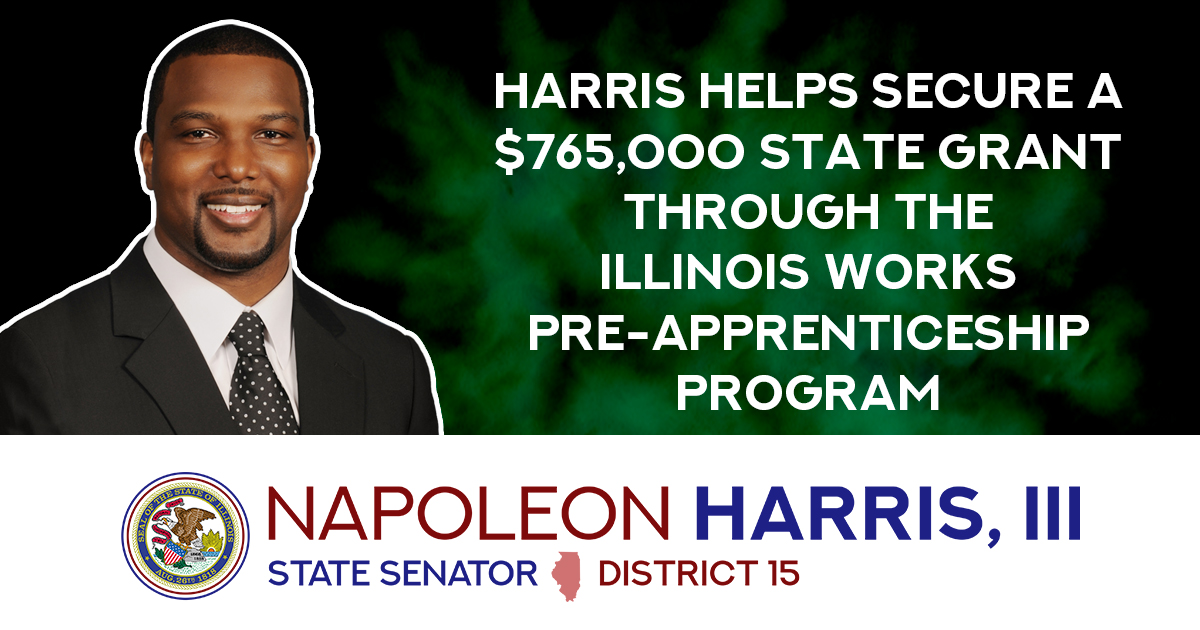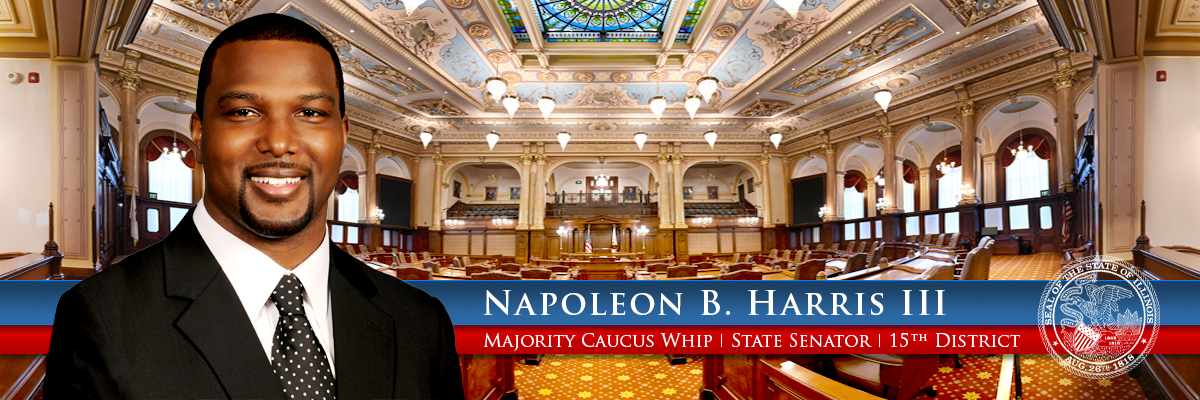- Details
- Category: Press Releases

SPRINGFIELD – After hearing the governor’s budget proposal for Fiscal Year 2027, State Senator Napoleon Harris (D-Harvey) released the following statement:
“The Trump administration is making major funding cuts to programs in Illinois, so people are counting on us to take care of those that rely on social services to survive. From what I am seeing, the governor’s proposed budget takes care of the people who need it most and doesn’t raise any new taxes on residents. I look forward to working with my colleagues over the next several months to pass a budget that residents from my community will be proud of.”
- Details
- Category: Press Releases

HOMEWOOD – State Senator Napoleon Harris III helped secure a $765,000 state grant through the Illinois Works Pre-Apprenticeship Program for Ascending Knowledge Community Outreach International in Harvey and Chicagoland Prison Outreach in South Holland.
“I’m glad to see residents of our community will get to take advantage of the Illinois Works program,” said Harris (D-Harvey). “Pre-apprenticeship programs like this are a critical pathway for ensuring Illinoisans are offered a chance to participate in the building trades, especially for people who haven’t previously been exposed to the option of trade school.”
- Details
- Category: Press Releases

HOMEWOOD – State Senator Napoleon Harris III helped secure a $600,000 state grant through the Open Space Land Acquisition and Development program for Blackstone Park in Dolton.
“Securing $600,000 for Blackstone Park is about making sure state dollars come back to Dolton and are put to work in our community,” said Harris (D-Harvey). “This investment will give families a safe, well-maintained place for children and their families.”
- Details
- Category: Events

HARVEY – State Senator Napoleon Harris III is teaming up with Meridian Health to host a free holiday turkey and ham giveaway for residents of the 15th District.
“The holidays are stressful enough. That’s why we are reaching out and supporting our residents this season,” said Harris (D-Harvey). “No one should go hungry during the holidays.”
The free giveaway will be held Wednesday, Dec. 10 from 11 a.m. to 1 p.m., or while supplies last, at 369 E. 174th St. in Harvey. Holiday turkeys and hams will be available on a first-come, first-served basis.
Residents must bring identification verifying district residency for the giveaway. Residents with questions should reach out to Senator Harris’ office at 708-893-0552.
More Articles …
Page 1 of 74




